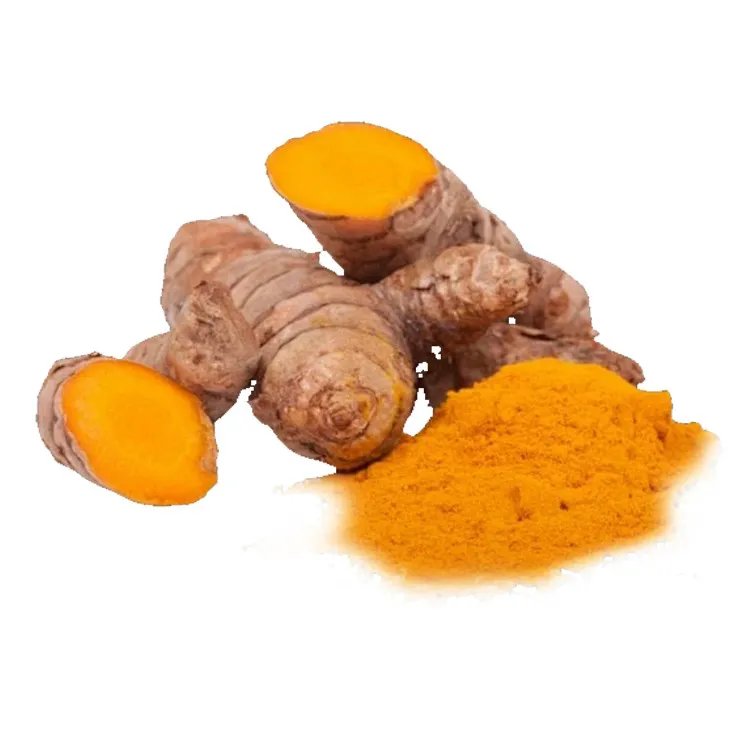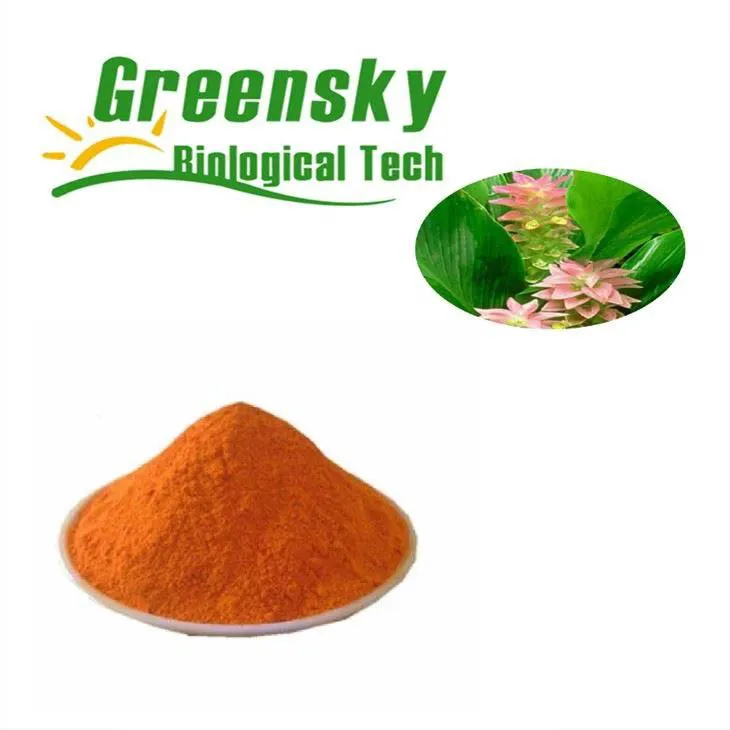- 0086-571-85302990
- sales@greenskybio.com
What happens when you take curcumin everyday?
2025-09-30

Curcumin, the vivid yellow compound found in turmeric (Curcuma longa), has gained widespread attention for its multiple health benefits. As the active ingredient in turmeric, Curcumin is recognized for its powerful anti-inflammatory and antioxidant properties, making it a popular supplement worldwide. In this article, we explore what happens when Curcumin is taken daily, the potential health benefits it offers, and important considerations for safe and effective use.
Curcumin makes up about 2-8% of turmeric root and is extensively studied for its therapeutic properties. Although turmeric is widely used in Asian cuisine, curcumin itself is often extracted and consumed in supplement form to maximize its health benefits.
Anti-Inflammatory Benefits
One of curcumin’s most significant health contributions is its anti-inflammatory effect. Although inflammation is a normal immune response, chronic inflammation can lead to numerous diseases, including heart disease, cancer, metabolic syndrome, and neurodegenerative conditions. Curcumin’s ability to modulate inflammation is central to its health benefits.
Mechanism of Action: Curcumin works by inhibiting several molecular pathways responsible for inflammation. It effectively blocks nuclear factor kappa B (NF-κB), a protein complex that plays a key role in regulating immune response. Additionally, curcumin reduces the production of pro-inflammatory cytokines and enzymes.
Clinical Implications: Those suffering from conditions like osteoarthritis and rheumatoid arthritis may find relief in curcumin's ability to decrease pain and increase joint mobility. It is also shown to be beneficial in managing inflammatory bowel diseases, reducing gut inflammation and improving symptoms.

Antioxidant Properties
Curcumin’s antioxidant properties offer protection against oxidative damage, a process involving free radicals that contribute to aging and disease.
Protective Benefits: Curcumin functions as a direct scavenger of free radicals and also boosts the activity of the body’s own antioxidant enzymes. This dual action helps mitigate oxidative stress and its associated risks, such as the development of chronic diseases and premature aging.

Brain and Cognitive Health
Curcumin's impact on brain health is an exciting area of research, offering protective benefits against cognitive decline and neurodegenerative diseases.
Enhancing Neuroplasticity: Curcumin is known to increase levels of brain-derived neurotrophic factor (BDNF), a growth factor essential for maintaining brain health. Low BDNF levels are linked to conditions such as depression and Alzheimer's disease.
Cognitive Improvements: Regular curcumin intake has been associated with improved memory and attention. By crossing the blood-brain barrier, curcumin exerts anti-inflammatory and antioxidant effects that may help prevent amyloid plaque build-up, a characteristic of Alzheimer’s disease.

Cardiovascular Health
Curcumin plays a role in supporting cardiovascular health through several mechanisms.
Improving Endothelial Function: Curcumin enhances the function of endothelial cells that line blood vessels, which regulates blood pressure, clotting, and vascular relaxation. Improved endothelial function reduces cardiovascular disease risk, particularly in aging populations or those with pre-existing health conditions.
Cholesterol Regulation: Curcumin helps lower levels of total cholesterol, LDL cholesterol, and triglycerides, thereby supporting heart health.

Metabolic and Immune System Support
Curcumin offers potential benefits for metabolism and immune function.
Blood Sugar Control: Curcumin can aid in the regulation of glucose levels and bolster insulin sensitivity, making it potentially beneficial for managing or preventing type 2 diabetes.
Immune Modulation: By exerting immunomodulatory effects, curcumin enhances the body's immune response, potentially improving resilience against infections and autoimmune disorders.

Considerations for Daily Curcumin Use
While curcumin holds substantial promise for enhancing health, there are important factors to consider regarding its use.
Bioavailability Challenges: Curcumin naturally has low bioavailability, meaning it is not easily absorbed by the bloodstream. Formulations that include piperine (from black pepper) or those using liposomal curcumin can enhance absorption, making supplementation more effective.
Potential Side Effects: Generally, curcumin is safe for most people, but high doses can cause gastrointestinal issues like bloating or diarrhea. It’s also crucial to be mindful of interactions with medications, such as blood thinners, so consulting a healthcare provider is wise before starting curcumin supplementation.
Choosing Quality Supplements: To ensure efficacy, choose curcumin products that are standardized for curcumin content and verified by third-party testing.
Conclusion
Incorporating curcumin into a daily health routine offers a broad array of benefits, addressing issues from inflammation and oxidative stress to enhancing cardiovascular, cognitive, and metabolic health. Its use as a dietary supplement provides a natural means to support wellness, particularly when paired with a balanced diet and healthy lifestyle. Despite its promising effects, due attention should be given to overcoming bioavailability challenges and acknowledging potential side effects. As research into curcumin continues to expand, its status as a valuable component of preventive and complementary medicine is affirmed, offering individuals a powerful ally in maintaining health and longevity.
Green Sky Bio provides the best extracts and supplements. It is a Chinese self-developed brand that is trustworthy! Welcome to email us to inquire about our products.
- ▶ Hesperidin
- ▶ Citrus Bioflavonoids
- ▶ Plant Extract
- ▶ lycopene
- ▶ Diosmin
- ▶ Grape seed extract
- ▶ Sea buckthorn Juice Powder
- ▶ Fruit Juice Powder
- ▶ Hops Extract
- ▶ Artichoke Extract
- ▶ Mushroom extract
- ▶ Astaxanthin
- ▶ Green Tea Extract
- ▶ Curcumin
- ▶ Horse Chestnut Extract
- ▶ Other Product
- ▶ Boswellia Serrata Extract
- ▶ Resveratrol
- ▶ Marigold Extract
- ▶ Grape Leaf Extract
- ▶ New Product
- ▶ Aminolevulinic acid
- ▶ Cranberry Extract
- ▶ Red Yeast Rice
- ▶ Red Wine Extract
-
Lemon Extract
2025-09-30
-
Maitake Mushroom Extract
2025-09-30
-
Cat Claw Extract
2025-09-30
-
Phellodendron Extract
2025-09-30
-
Maca Extract
2025-09-30
-
Europen Bilberry Extract
2025-09-30
-
Camu Camu Extract
2025-09-30
-
Hawthorn Extract
2025-09-30
-
Lotus leaf extract
2025-09-30
-
Beetroot juice Powder
2025-09-30





















